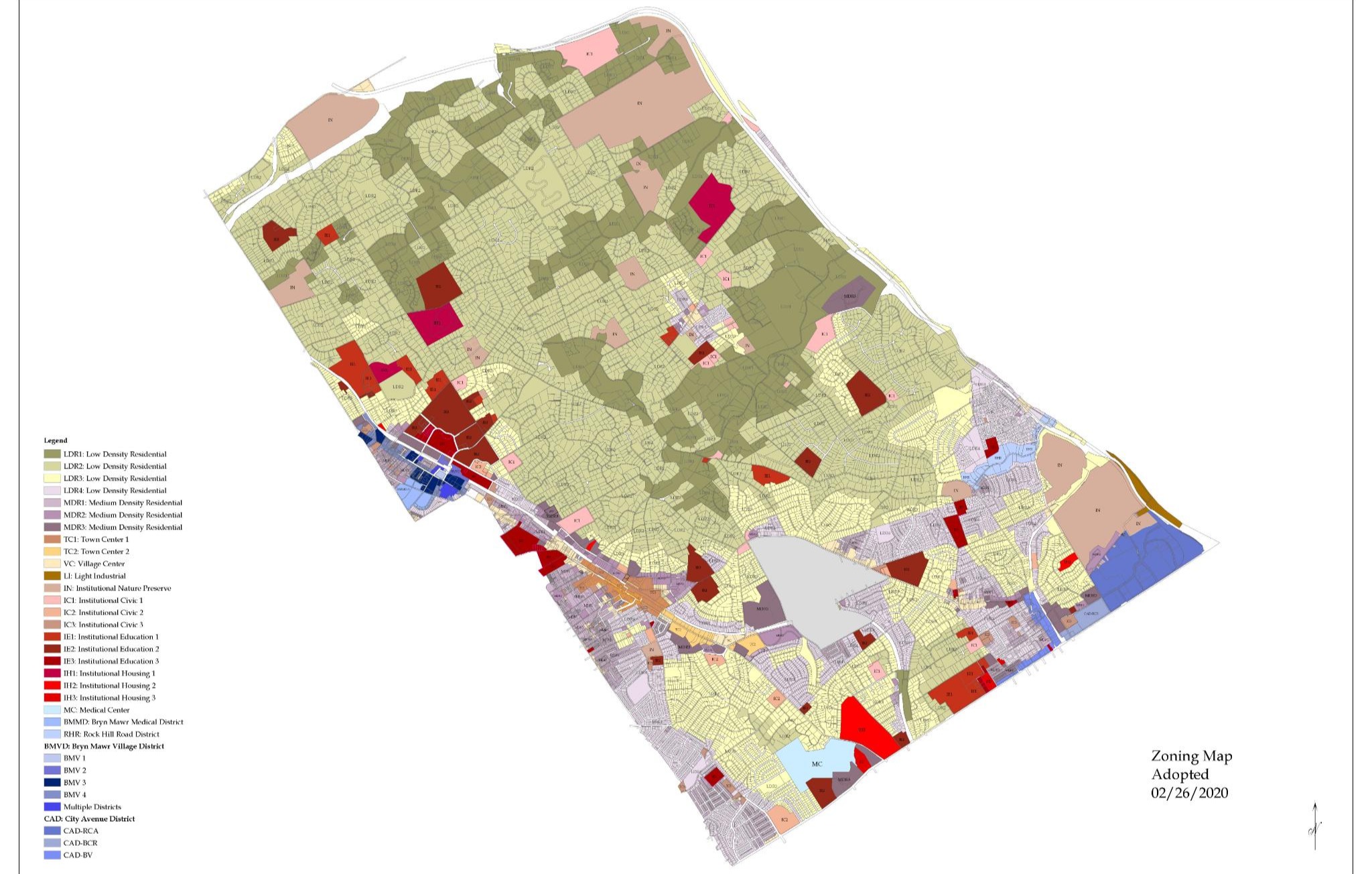Zoning Districts, Regulations, Permits, & Variances
All municipalities are divided into Zoning Districts. This practice began over 100 years ago, with the primary intention being to protect public health, safety, and welfare by separating incompatible uses. Prior to the development of Zoning Districts, heavy industrial facilities could be developed right next to residential properties. Zoning Districts prevent that from happening by grouping residential, agricultural, commercial, and industrial use properties into their own respective areas within the municipality.

Each municipality has a Zoning Map, on which each of the Zoning Districts will be mapped. The Zoning Map shown above is the 2020 Zoning Map for Lower Merion Township, which is a municipality in which Alta frequently works in Montgomery County, PA.
Each municipality also has a Zoning Code, which is a set of regulations and guidelines for each Zoning District that govern the use and development of the properties within each District, with the goal of ensuring that development within each District aligns with the broader goals and planning principles of the municipality. Zoning Codes also help to guide the physical development of each District in a way that balances the needs of the property owners and the environment. Zoning Codes generally include regulations regarding building size and height, setbacks from property lines, building and impervious lot coverage allowances, and other similar parameters. Zoning Codes may also address such issues as land use permissions, parking requirements, signage regulations, environmental considerations, and more. The Zoning Codes for most municipalities can be accessed from the municipality's website or by using ecode360.
Zoning Permits are typically required any time a property owner plans to construct or add anything to their property, or make any changes to the approved land use.
If you are planning a project that does not meet the rules and regulations of the Zoning Code, an application for a Variance or Special Exception may be submitted to the municipality to request relief from one or more zoning regulations. A Variance is formal authorization from the municipality allowing a property owner to deviate from a specific zoning regulation due to a unique circumstance or hardship related to the property, as long as the project will not adversely affect neighboring properties or public welfare. A Special Exception refers to a case where a specific use or project is allowed by the Zoning Code, but only by "Special Exception," whereby the project meets specific predetermined criteria that is outlined in the Zoning Code.
Requests for Variances and Special Exceptions are typically presented in the form of an application to the municipality's Zoning Hearing Board. The applicant will then appear before the Zoning Hearing Board to present their case for relief. Zoning Hearing Board meetings are considered legal proceedings. Therefore, it is recommended that applicants have an attorney present to represent them. However, Alta is also happy to attend to provide engineering support and assistance at these proceedings.
Feel free to CONTACT US to discuss your project and the permits and/or variances that may be required to make your plans a reality.
Further Information and "Example" Plans Developed by Alta can be Viewed on the Following Pages:
